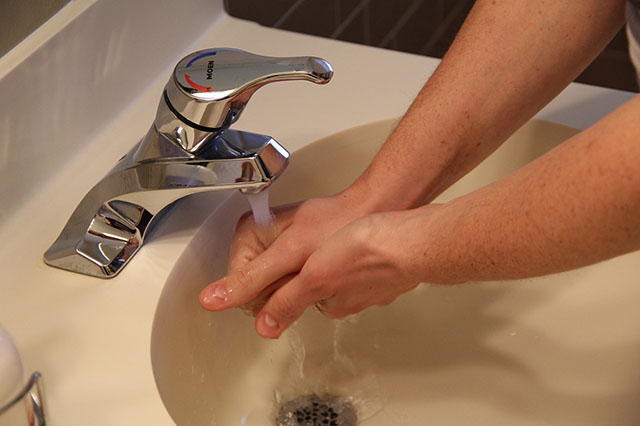
The FDA is challenging manufacturers of antibacterial soaps to prove that their products do more good than harm. ”Long-term exposure to…[active ingredients] triclosan (liquid soaps) and triclocarban (bar soaps) could pose health risks, such as bacterial resistance or hormonal effects,” according to a statement by the Food and Drug Administration (FDA) this week. Additionally, the agency says that there is no evidence that these soaps are more effective at preventing illness than washing with plain soap and water.
The FDA proposed a rule that requires companies to do one of three things:
- Provide data to support an antibacterial claim; or
- Remove the antibacterial active ingredients (triclosan or triclocarban); or
- Remove the antibacterial claim from the product’s label
The proposed rule also changes how the agency will evaluate an antibacterials soap to directly test its effectiveness on infection rates and require proof of a clinical benefit over washing with non-antibacterial soap. The FDA says that new research, coupled with the widespread daily use of these potentially harmful products prompted the agency to take action.
The new rule is welcomed by many health advocates that have been warning about the dangers of triclosan and triclocarban for years. LocalMotionGreen at Ecology Center first reported on the concerns regarding the safety and effectiveness of the active ingredients in antibacterial soaps over six years ago.
The 2007 article, Soapy Solutions to Antibacterials reminds us that plain soap and water work fine and to rub hands together under running water. As well, the FDA emphasizes that “hand washing is one of the most important steps people can take to avoid getting sick and to prevent spreading germs to others.” Their site links readers to the Centers for Disease Control’s webpage, Handwashing: Clean Hands Save Lives.
The proposed rule applies only to soaps and body washes used with water; not hand sanitizers, wipes, or soaps used in health care settings. The FDA welcomes public comment, the period for which will be open for 180 days. Companies have one year to submit new data or information.
The FDA, which oversees triclosan as an ingredient in over the counter drugs (such as antibacterial soap), is collaborating with the Environmental Protection Agency, which regulates triclosan as a pesticide. Their joint effort aims to create “government-wide consistency in the regulation of the chemical,” according to the FDA.
More information:
FDA Consumer Update: FDA Taking Closer Look at ‘Antibacterial’ Soap
FDA News Release: FDA issues proposed rule to determine safety and effectiveness of antibacterial soaps
Federal Register, Proposed Rule: Safety and Effectiveness of Consumer Antiseptics; Topical Antimicrobial Drug Products for Over-the-Counter Human Use; Proposed Amendment of the Tentative Final Monograph; Reopening of Administrative Record
-Melissa Cooper Sargent

